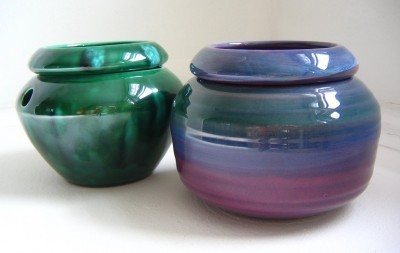






Watering is the most common chore you do with your potted plants, and you probably do it by pouring water onto the surface of the potting soil. While this can be an effective way to get moisture to your plants, it’s not the best method for many varieties.
Some plants, like African violets, get discolored and covered in spots if you drop water on the leaves. If your plant is becoming root bound, moisture might not soak into the soil and may run down the sides of the planter instead. Watering potted plants from the bottom eliminates these problems and adds moisture to the soil in a more efficient way. You’ll save time and effort as well as giving your plants a healthier environment once you learn how to water plants from the bottom.
What is bottom watering? This is a method of watering plants from the bottom up. When you water potted plants from the bottom up, their roots get stronger because they’re always growing directly down toward the moisture. Plus, you’ll always know the moisture in the potting soil reaches all the way to the bottom of your plants’ roots. When you do it correctly, this method is suitable for any potted plant, both indoors and out.
When bottom watering potted plants, the key is in the timing. Push your finger into the soil between the wall of the container and the stem of the plant. If you push down to the second knuckle and still don’t feel moist soil, it’s time to water the plant.
Find a container large enough to hold the planter and fill it halfway with distilled or filtered water. Tap water often has too much chlorine, which can damage plants in large doses. Place the planter in the container and leave it alone for 10 minutes.
Check the moisture level in the container again to see if the potting soil has absorbed enough water. If it’s still dry underneath the surface, keep the planter in the water for up to 20 minutes longer to allow it to soak up as much water as possible. Remove any excess water.
Bottom watering plants keeps the roots uniformly moist, but it doesn’t wash away the salt and mineral deposits that accumulate on the top of the soil after time. Pour water over the top of the soil until it drains out the bottom once a month, just to rinse the soil and remove the excess minerals.
Copyright © www.100flowers.win Botanic Garden All Rights Reserved